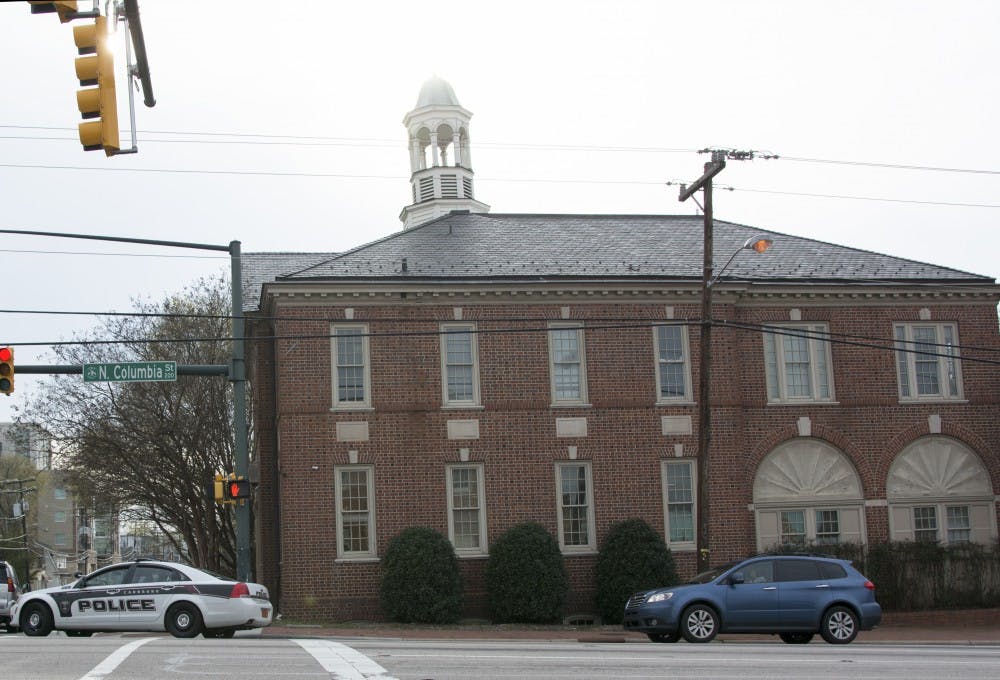Before moving to New Hope Commons, Sorenson lived on Franklin Street for a few months and then in a homeless camp near Red Roof Inn. The homeless camp was run by Robert Williams, a 61-year-old man who has been experiencing homelessness for 20 years, resulting from drug addiction.
Williams has a different perspective on his homelessness. He said he believes he was given his role from God to help other people.
“I would like a nice car, a nice little house, a wife. I would love a child, but it’s not like I don’t have anything,” he said. “What I have is worth more than rubies and gold.”
Sorenson said she called Inter-Faith Council every day for three months and could not get a bed.
“I saw the people in the shelter and some of them had been living in the shelter for two or three years already, and in my mind I’m thinking, give someone else a chance,” she said. “I felt like the world didn’t care about me anymore.”
Stephani Kilpatrick, IFC residential services director, said the men’s shelter has 52 beds with 17 extra cots on cold nights, and the women and families shelter has 14 beds for single women with three extra cots and space for 10 families. All beds at the shelters are currently full. If they don’t have enough beds, they contact shelters in other counties to find out if they have availabilities, she said.
The OCPEH found that, of the homeless population in the county, 74 percent were male, 26 percent were female and 1 percent were transgender people. The report also found 46 percent were Black or African-American, 45 percent were white, 8 percent were multiple races and 1 percent were American Indian or Alaska Native.
Kilpatrick said IFC tries to make the shelters as low barrier as possible. They require a government photo identification, a criminal background check and a no walk-in policy.
DeMonte Fowlkes, 41, went to the men’s shelter for meals and on cold nights during his three years of homelessness. People might know him as “cameraman” because he would take pictures of people on Franklin Street, print them and sell them.
“I felt better doing that than just asking for money because at least they’re getting something back,” he said. “It made me feel grateful for the people that gave me money because sometimes you go out there, and you don’t make any money and you haven’t eaten all day.”
Through the Community Empowerment Fund, Fowlkes was given housing in October at Ashley Forest Apartments. Fowlkes would oftentimes sleep behind the Ackland Art Museum or in the woods next to Martin Luther King Jr. Boulevard.
Fowlkes said Love Chapel Hill, a Christian church that hosts services in the Varsity Theatre, has always been there for him. Not only did the church give him clothes, but they also got him and eight other homeless men a hotel room for a hurricane a few years ago, he said.
To get the day's news and headlines in your inbox each morning, sign up for our email newsletters.
Love Chapel Hill provides transportation, clothes and financial aid for people experiencing homelessness that are trying to get housing and other necessities. The organization has a tight partnership with CEF for members that need further assistance.
Matt LeRoy, teaching pastor at Love Chapel Hill, said the pastors on staff intentionally have other jobs to fund these services.
“That’s been one of our convictions from early on, not see ourselves in the role of swooping in just to extend help to a person but to come beside a person and recognize who they are, their dignity and worth in being a human being,” he said.
LeRoy said the church purposefully chose its worship space on Franklin Street to be in the heart of the community.
“Franklin Street is the place where people from all walks of life come and collide with each other,” he said. “We knew from the beginning that embracing the homeless population as part of our family had to be a part of what we did, or we wouldn’t be true to what downtown is.”
Sorenson said she applied to many jobs but was unable to provide an address or wear the right clothes to an interview. A few days each week, she panhandles at the stop sign of New Hope Commons from 2 p.m. to 5 p.m.
She said she wants people to know that people experiencing homelessness are good people who are struggling and want the same opportunities as everyone else.
“I had to learn that my situation can’t be everybody else’s fault,” she said. “There’s a lot of good that comes out of hard struggles and those are the people that will preserve in life.”
city@dailytarheel.com




